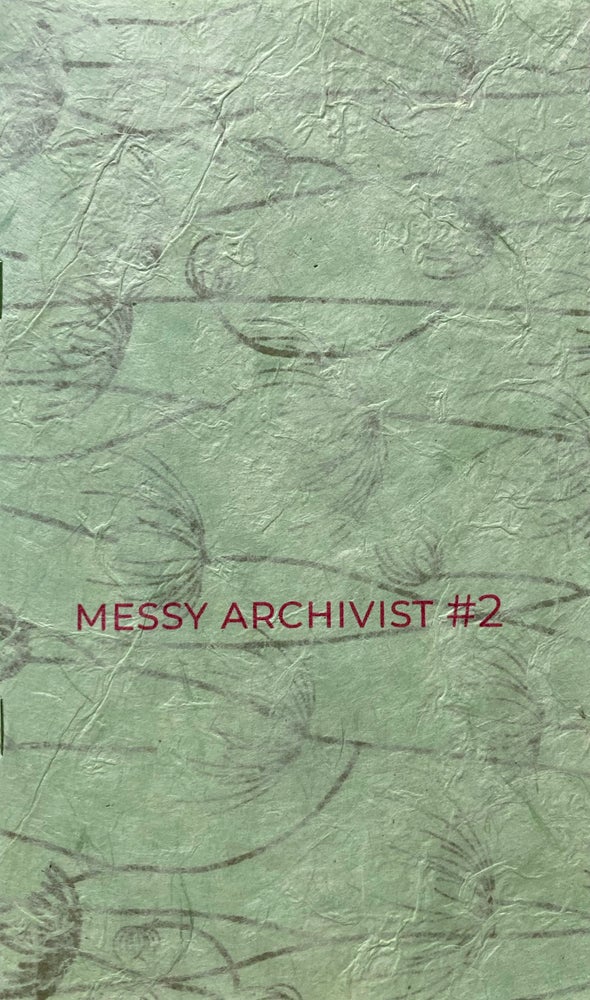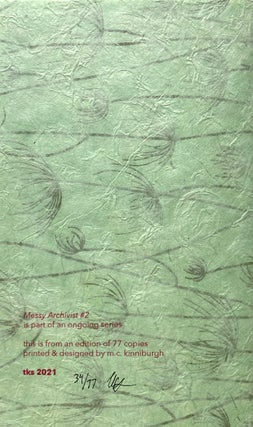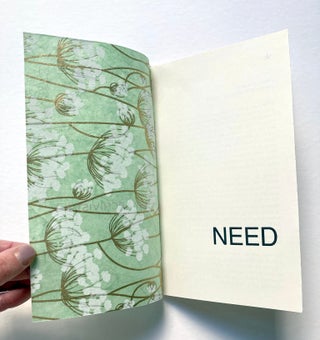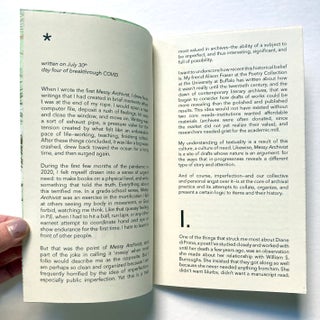Messy Archivist #2.
TKS Books, 2021. Item #3004
Saddle-stitched chapbook with colored staples in green lokta paper wrappers.
This is the second in a series of chapbooks that explores archival practice; Messy Archivist #2 focuses on the idea of "need."
This is from an edition of 77 copies, numbered and signed by the author. For a digital version of the first Messy Archivist, click here.
An excerpt:
In my work, I see how there is a fragile economy around the movement of papers from people to institutions, predicated on an intricate web of need.
What I mean by this, is that research is an age-old practice of seeking to know, which like many other things, has been commodified in capitalistic practice over the past few centuries in new ways. American culture and funding structures are driven by the need for knowledge, intelligence, and proof of culture worth saving in the post-Holocaust, post-war-all-the-time climate that still values Western superiority. The colonial need for conquest, inherent to “discovering” new works and new lands, which can lead to research funding, new books (not that those make money), and new cultural capital.
As it stands currently, we all need to be able to survive in a transactional society which requires money for goods and services. Beyond this too, within that transactional nature we often want to have our accomplishments acknowledged, our labor made visible and appreciated. We are bound by these webs of need—the scholar needs the poet, the institution needs the archive, prestige and money flow accordingly.
If you are a researcher: are you just as willing to write a grant to study Poet X as you would be to make them a cup of tea and do their dishes?
Which activity is most beneficial? On which factors does this answer depend?
I started out as a grant-writer, but became a dish-washer. This is an important shift that frames everything that comes after.
Out of Stock




